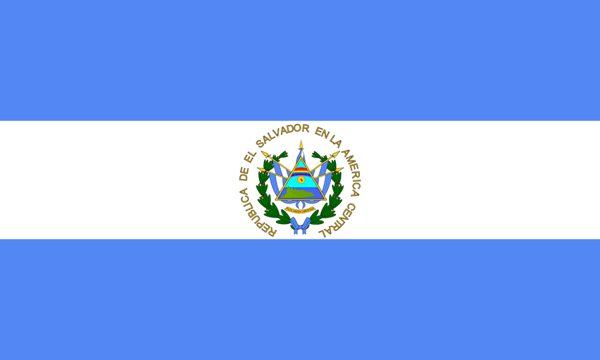-
Services
-
Software Project Delivery
-
Services
-
Solutions
-
Technologies
-
-
Network
-
Discover
-
Regions
-
Industries
-
Must-Read Guide
-
2026 Global Software Outsourcing Rates and Trends GuideDiscover why rates are just one aspect of the Accelerance Global Software Outsourcing Rates & Trends Guide, which offers valuable insights into the software development landscape.
-
-
-
Resources
-
Our Resources
-
Newest White paper
-
Aviation Ecosystem Modernization: A Holistic Approach for Meaningful TransformationModernize aviation by integrating people, processes, technology, and data
-
-
New eBook
-
 The True Cost of Software DevelopmentHidden costs can wreck your budget. Our new eBook breaks down the true cost of outsourcing—get your copy to stay ahead.
The True Cost of Software DevelopmentHidden costs can wreck your budget. Our new eBook breaks down the true cost of outsourcing—get your copy to stay ahead.
-
-
Featured White paper
-
Flow & Process OptimizationIn this white paper, you'll learn to streamline workflows, improve change management, and accelerate results.
-
-
-
About
-
About Accelerance
-
Our History
-
Accelerance: Our HistoryThere's great talent everywhere and great teams everywhere, which is the basis of the Accelerance model.
-
-
Software Without Borders
-
New Episode Every Week!Tune into our podcast Software Without Borders, the essential listen for technology leaders and business owners in the software sector who crave insights from the industry’s top minds.
-
-
Andy's Book
-
Synergea: A Blueprint for Building Effective, Globally Distributed Teams in the New Era of Software DevelopmentPeople are first and locations are secondary when it comes to software development success.
-
-
- Our Clients
El Salvador

Overview
Known as the land of volcanoes and for the quality of its coffee, El Salvador is the smallest and most densely populated country in Central America. Reforms have diversified its economy and improved social conditions. However, roughly a third of its people live below the poverty line and crime remains a disincentive to investment.
The technology sector is in its initial phases but showing promise, aided by a concerted government effort to attract investment, notably the removal of taxes on the sector. Although improving connectivity infrastructure is a priority, El Salvador has the highest mobile phone penetration in Central America, with 11.5 million phones among a population of 6.5 million.
The name “El Salvador” translates to “The Savior” in Spanish, referencing Jesus Christ. The majority of Salvadorans identify as Christians, predominantly Roman Catholic, which has influenced the country’s culture, traditions, and religious practices.
The Accelerance Global Network is the most curated list of high-quality global teams ever assembled.
1400
Developers
Total number of developers in our certified partner network by country
2
Certified Partners
Total number of certified partners in our global network by country.
5hrs
Time Travel (From NY)
Average flight time from NY to the major cities in the country.
123
Partner Innovation capability
The score reflects investment in STEM progrms and IT funding by country.
92
Partner Skill Level
Level of workforce skills and quality of education, including factors such as digital literacy, interpersonal skills, etc.
98
Partner Global Competitiveness
National productivity based on 12 core pillars, including government policy, infrastructure, economic stability, etc.
Medium
Software Outsourcing Readiness
Overall rating, based on the maturity of the tech sector, socio-political conditions, and on-the-ground research by Accelerance.

Talent Pool & Education
El Salvador is gearing up to become a technology hub. In 2023, the Innovation and Technology Manufacturing Incentives Act was passed eliminating all taxes on technology innovations, software and app programming, AI, and computer and communications hardware manufacturing. A seven-year deal with Google Cloud to open a hub in El Salvador aims to speed up digital transformation in education, health, and public services. Meanwhile, Spanish surveillance technology company Magline is reportedly considering making El Salvador its operational hub for the Latin American market.
A commitment to the digital transformation of the entire education system is one of the main lines of action outlined in the government’s Digital Agenda 2020-2030. Through an agreement with Google For Education, El Salvador aims to become the first country in the world with 100% of its students active on the Google Classroom platform. Kits delivered to high-school seniors also come with an English language course. However, it has much ground to make up as the country rates poorly in both access to and quality of education. The country is addressing its limited levels of connectivity infrastructure with the expansion of a fiber-optic network.
Language
The official language is Salvadorian Spanish, a Spanish dialect that differs in pronunciation and usage from the rest of Central America. English is not widely spoken except in major tourist areas but you can expect higher proficiency in the business and IT sectors.
.png?width=600&height=375&name=Untitled%20design%20(15).png)
Economic Outlook
The International Monetary Fund, which is negotiating a $1.3bn bailout with El Salvador, described the country’s fiscal situation in late 2023 as “fragile”. The economy has been the slowest-growing in Central America during President Nayib Bukele’s time in power and more than a quarter of Salvadorans live in poverty, although some progress has been made in lifting living standards.
While the fiscal response to the COVID-19 crisis helped mitigate the impact of the pandemic, it cost around 16.5% of GDP. Debt has declined in recent years but remains above pre-pandemic levels. Moderate economic growth is forecast for 2024 and the World Bank expects medium-term growth above historical averages, on the back of private consumption, public investment, and tourism.
In 2021, El Salvador became the first country in the world to adopt the cryptocurrency Bitcoin as legal tender, a move that has been harshly criticized. According to Bukele’s social media account in March 2024, the country’s bitcoin portfolio tops $400 million.
Political Conditions
For the first time since El Salvador’s civil war ended in 1992, the country held a general election under a state of emergency imposed by President Nayib Bukele as part of his crackdown on gangs – a move that has slashed homicide rates but drawn criticism for human rights violations.
Despite a constitutional ban on re-election, Bukele stood for a second term in February 2024, backed by the government-controlled Constitutional Court. With soaring approval ratings and virtually no competition, he won 85% of the vote, after campaigning to maintain the gang crackdown, invest in infrastructure projects, and promote economic growth. Bukele’s right-wing party, Nuevas Ideas, has also secured almost all of the 60 seats in Congress, so he will face few obstacles to passing legislation.
Since coming to office in 2019, the President has used a large legislative majority to dismantle checks on executive power and has been accused of governing in an authoritarian manner. Relations with the US have deteriorated amid concerns over possible rights abuses, which has encouraged Bukele to pursue closer ties with China.
Learn more about our customer stories.
Looking for a customer story in a specific technology or industry? Discover compelling customer narratives within a specific technology or industry that resonate with your unique software development needs.
